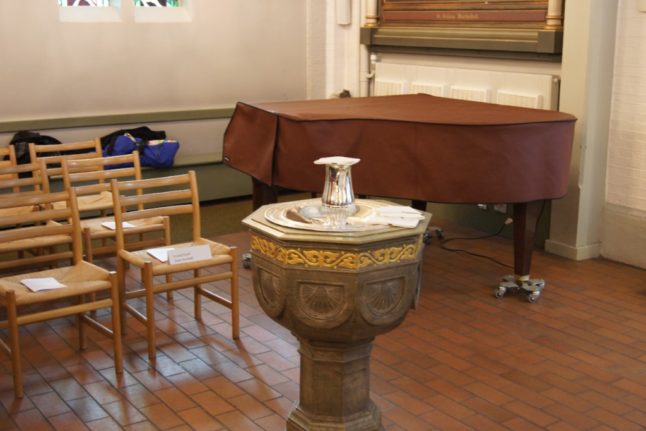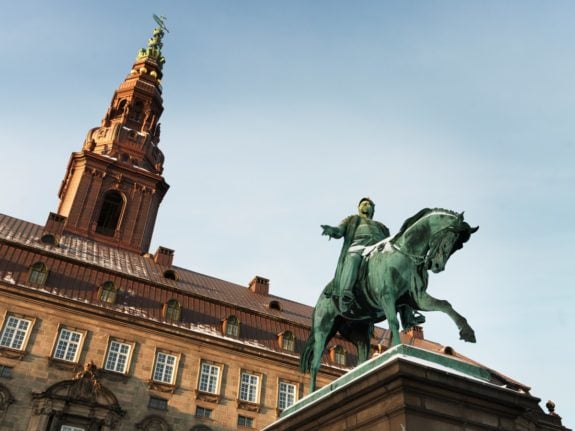What is baptism?
The Lutheran Church states that baptism (dåb) is all about parents and godparents saying ‘yes’ to the Christian faith on behalf of a child. The child can then choose to confirm his or her faith later by being confirmed, which usually happens at the age of 15 in Denmark.
Most baptisms take place when a baby is under the age of one and many parents also use the ceremony to officially name their child. In Denmark, a baby has to be legally named by the time they are six months, so this is why many babies are only around three months old when they are baptised. However babies born in South Jutland have to be named by notifying the municipality before being baptised.
It’s worth remembering that you can’t pick any name for your baby in Denmark. There is a naming law (navneloven) which states that a name cannot be inappropriate or offensive or detrimental to the child.
READ MORE: Explained: The rules for naming a baby in Denmark
How popular are baptisms?
They are popular. According to Statistics Denmark, there were 40,696 baptisms in 2022. When you consider that most baptisms are babies under the age of one, that equates to around 70 percent of babies born that year (58,430 births in 2022).
As with confirmation, the high number does not mean that people are massively religious in Denmark. It is more a reflection of the country’s love of traditions and a desire to celebrate a child’s arrival.
Baptism also means you officially become a member of the Danish national church, Folkekirken. There is a small church tax to pay for this (kirkeskat) once you start paying taxes but it means you can get married in a church (at least one of the couple must be a member) and have a church funeral.
You always have the right to have your child baptised in a church, even if the parents have never been church members or were previously members and later opted out.
According to Statistics Denmark, around 72 percent of people in Denmark are members of the Danish national church and pay church tax.
READ MORE: Why does Denmark have church tax and do you need to pay it?
What is the process of getting a child baptised?
The parents must book the baptism in advance, by contacting the church office. A few weeks or days before the baptism service, the parents attend a meeting with the priest to understand more about what baptism means and their part in the service.
Parents must choose at least two and no more than five godparents (faddere), who can be friends and family and they must have been baptised themselves.
The baptism usually occurs on a Saturday or Sunday, during the morning service. There can be three or four babies getting baptised during the same service and they usually wear a special white baptism gown, which may have been passed down through the family.
In some churches, the baby is carried in down the aisle at the beginning of the service – like a wedding procession only different.
During the baptism, the priest will speak to the child and make a sign of the cross over their face and chest.
The priest asks a series of questions to the parents and will pour water over the child’s head three times, for God the Father, God the Son and God the Holy Spirit. The priest then places a hand on the child’s head and blesses the child.
After the child has been baptised, the priest speaks to the godparents to voice their support for the child.
READ MORE: The complete guide to confirmation in Denmark
Baptism Party
Most families have a party afterwards (dåbfest), which can be anything from an informal brunch with a few friends and family, to a three-course meal or a big party with 80 guests. Some people decide to invite extra people to the party who weren’t there at the church.
There will often be food, cake, drinks and some speeches. The baptised child will receive gifts, such as a children’s bible, a cross, H.C.Andersen fairytales, or another keepsake present.
Some people opt for a more practical gift like a highchair or some clothes or bedding. An old tradition was to plant an apple tree that grows with the child. Another tradition is for the child to have his or her first sleep after baptism in the christening gown, as according to old superstition, it ensures the child lives a good life.



 Please whitelist us to continue reading.
Please whitelist us to continue reading.
Member comments